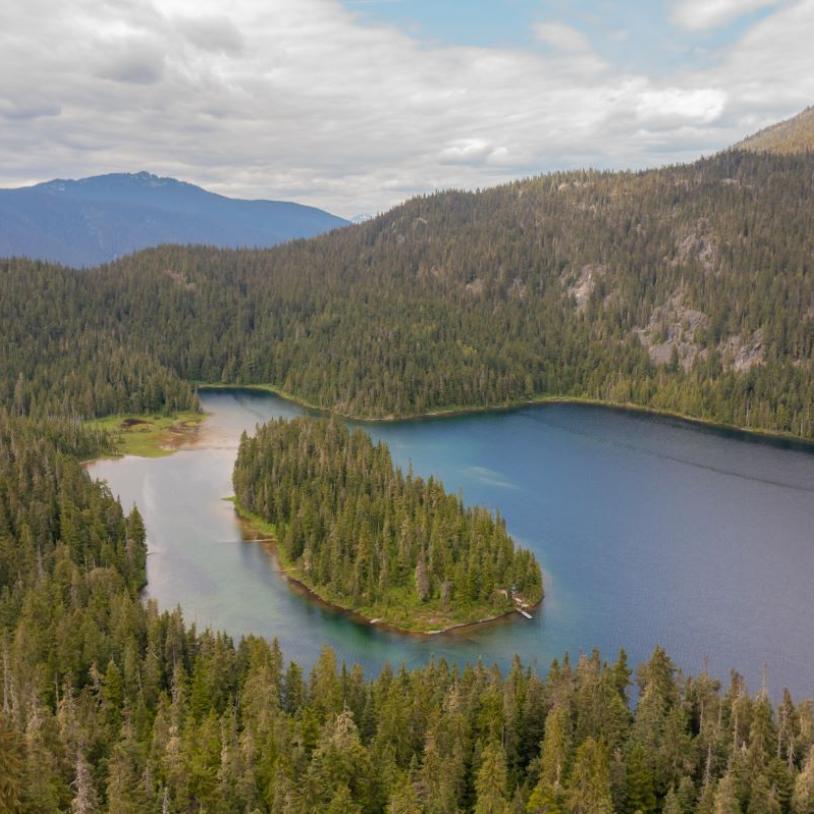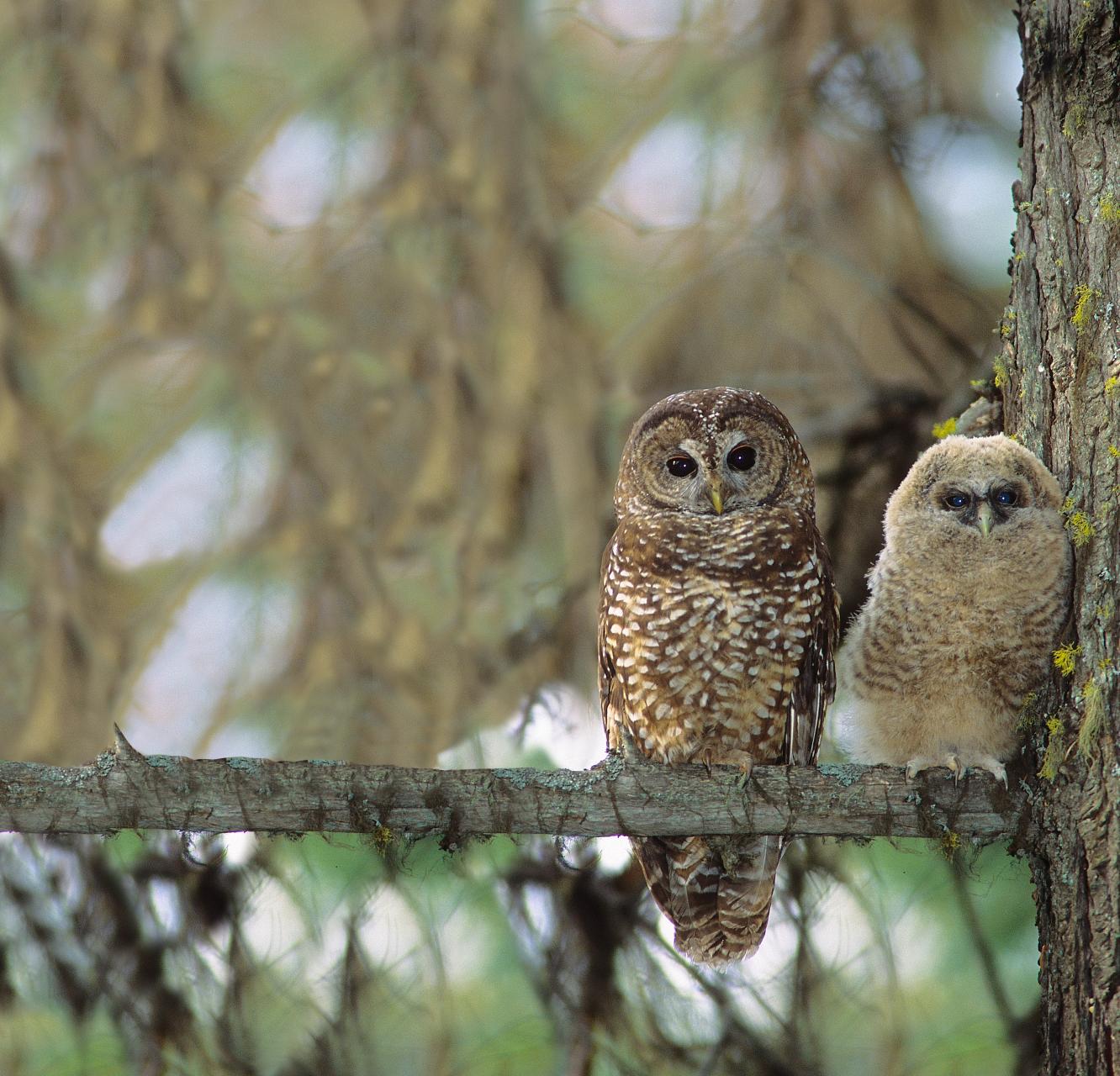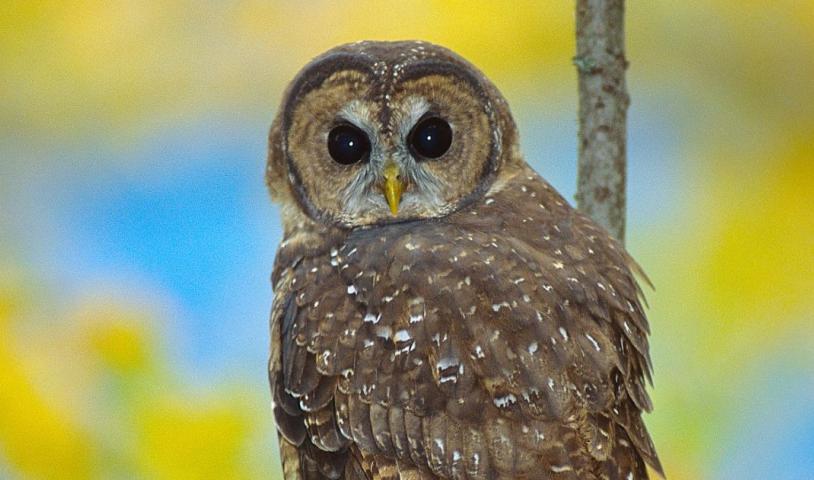UPDATE: Logging starts in spotted owl habitat
Wednesday, February 22, 2012
Logging has started in spotted owl habitat located near Chilliwack, sparking a "protest vigil" by angry residents.
"The fallers are here now," Post Creek resident Betty Ann Belisle said early Wednesday morning.
"It was a protected area for the spotted owl, now they're not protecting it," she said.
The logging will also shatter the scenic beauty of the area for residents — and for recreational users alike, she added.
"They're ruining it, and the whole valley, for the people who come up here too."
But Tamihi Logging president Brian Dorman said the company is leaving 50 per cent of trees around a trail built by the residents, and 40 of the largest trees in the harvest area for the spotted owl.
He pointed out that B.C. is on the northern fringe of spotted owl territory, which extends into the U.S where "thousands" reside in Washington, Oregon and California.
Yet he said some 220,000 hectares of forest lands in B.C. have been set aside for the protection of about 10 owls reported in this province.
"It's pretty much ridiculous," he said, and the company is considering taking legal action against media publishing "unresearched" reports.
Chilliwack Forest District manager Allan Johnsrude said the decision to approve logging was "not a decision that was made lightly" and came after a long process of due diligence owing to the "sensitivity" of spotted owl protection.
"This is all about putting together a new plan that protects more and better habitat for the spotted owl," he said.
Logging was approved in a small 142-hectare area — 48 hectares of which is the Post Creek area — to make up for other harvest areas that Tamihi lost when the province expanded the total area set aside for wildlife habitat, he said.
The area where logging is approved is not "prime habitat" for spotted owls, and the company is required to leave a certain number of trees for "long-term owl habitat," Johnsrude said.
A government fact sheet and the rationale behind the logging approval is available on the Chilliwack Forest District website.
Glen Thompson, spokesman for the Friends of the Chilliwack River Valley, said he wonders if the ministry would have signed the exemption to allow logging in a wildlife habitat area, if they had known a spotted owl was located nearby.
"It seems they cannot undo their exemptions, and now they have their fingers crossed that we don't take them to federal courts as was done successfully with the Orca, Salish Sucker and Mountain Caribou."
Court action is being "explored," Gwen Barlee at the Western Canada Wilderness Committee, said Wednesday.
"But at first glance, the laws are so weak in B.C. when it comes to endangered species that you have a government ... that can allow logging in the protected habitat of one of the most critically endangered species in all of Canada," she said.
"This is a black-eye on B.C. and a black-eye on logging."
However, Tamihi Logging said in an earlier statement that under terms of the permit a "specified number" of trees suitable for "potential nest or roost sites for spotted owls" must be left standing.
And not all the planned cutblocks are in old-growth forest areas, the company said.
A ministry spokesman said earlier that in an effort to protect "better" habitat for the spotted owl elsewhere in the Chilliwack Forest District, a "mitigation agreement" was signed with Tamihi to allow a limited amount of logging near Ford Mountain and Post Creek.
This agreement came after the government expanded wildlife habitat areas in 2008, which affected Tamihi's harvesting rights in those areas.
The Post Creek WHA was expanded from 1,100 hectares to more than 3,000 hectares, according to Tamihi.
The government fact sheet also stated that one spotted owl was identified about three kilometres away from the nearest planned harvest area in September last year.
Ministry staff will monitor the owl's movements during logging, and work will be suspended if the owl moves into the harvest area.
But Belisle said that's a "ridiculous" provision.
"Because the owl's not going to hang around while they log," she said. "Once the forest is gone, they will never come back."





